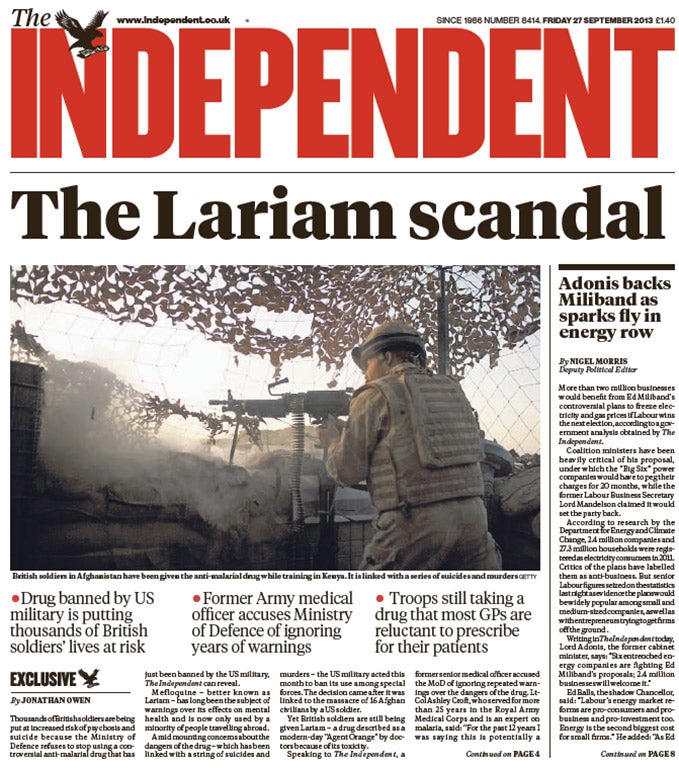Lariam timeline: From approval to psychosis warnings
Hundreds of British soldiers are suffering from mental illness after being given the drug

Your support helps us to tell the story
From reproductive rights to climate change to Big Tech, The Independent is on the ground when the story is developing. Whether it's investigating the financials of Elon Musk's pro-Trump PAC or producing our latest documentary, 'The A Word', which shines a light on the American women fighting for reproductive rights, we know how important it is to parse out the facts from the messaging.
At such a critical moment in US history, we need reporters on the ground. Your donation allows us to keep sending journalists to speak to both sides of the story.
The Independent is trusted by Americans across the entire political spectrum. And unlike many other quality news outlets, we choose not to lock Americans out of our reporting and analysis with paywalls. We believe quality journalism should be available to everyone, paid for by those who can afford it.
Your support makes all the difference.1970s - Developed by the US army
1989 - Approved for use in the UK and US
1996 - UK Committee on Safety of Medicines advises doctors to warn patients about the neuropsychiatric risks of taking the drug
2001 - First randomised, controlled trial of the drug in a mixed population of general travellers reveals that more than two-thirds reported side effects, and in six per cent of cases they were severe
2002 - A US Food and Drug Administration safety alert warns of reactions including depression, paranoia, hallucinations, anxiety, convulsions and psychotic behaviour
2007 - The former Roche chairman Dr Franz B Humer tells the company AGM that “more effective antimalarials with better side-effect profiles were now available, and these were generally used”.

2013 - The Independent reveals how the MoD continues to use Lariam, during a year in which the US army declares it a drug of last resort which is banned by its special forces, and the US FDA issues a “black box” warning over its psychiatric side-effects. In the UK, the Medicines and Healthcare products Regulatory Agency strengthens warnings on side-effects.
2014 - European Medicines Agency warns of the “predominance of neuropsychiatric adverse reactions” and Public Health England releases similar guidance and says Lariam “may increase risk of psychosis and anxiety reactions.”
Join our commenting forum
Join thought-provoking conversations, follow other Independent readers and see their replies
Comments